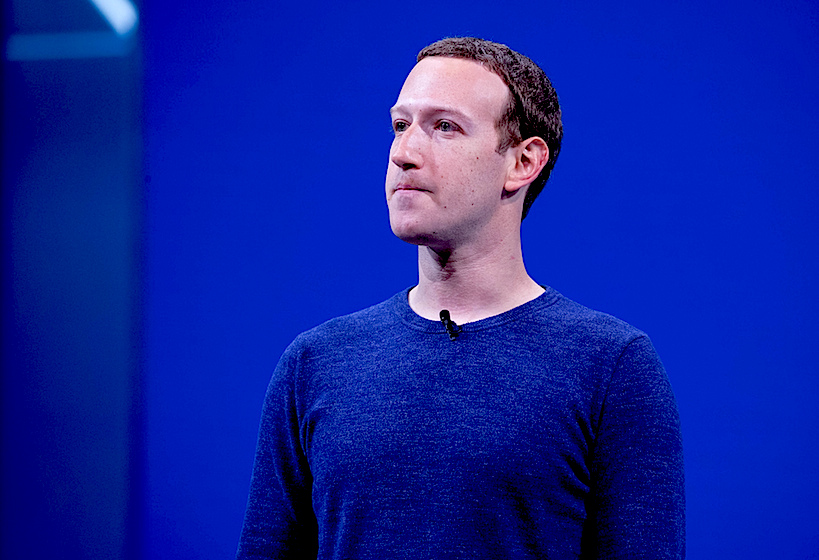Facebook and Instagram parent company Meta Platforms Inc. delighted investors today as it crushed analysts’ targets on earnings and revenue, sending its stock higher in extended trading.
The company reported first-quarter earnings before certain costs such as stock compensation of $6.43 per share, well ahead of the $5.28 per share consensus estimate. Revenue for the period came to $42.31 billion, up 16% from a year earlier and easily beating the Street’s target of $41.4 billion.
All told, Meta delivered a net profit of $16.64 billion in the quarter, rising from $12.37 billion one year ago.
On a conference call, Meta Chief Financial Officer Susan Li told analysts that the company is looking for second-quarter revenue of between $42.5 billion and $44.5 billion, the midpoint of that range matching the Street’s target of $44.03 billion. She delivered the optimistic guidance while admitting the company has been hit by reduced ad spending from e-commerce exporters based in Asia.
Meta Chief Executive Mark Zuckerberg (pictured) said on the call that the business is performing well. “I think we’re positioned to navigate the macroeconomic uncertainty,” he said, referring to the trade disruption that’s anticipated to arise from U.S. President Donald Trump’s recently imposed tariffs.
The company said it’s reducing its forecast for total expenses to a range of between $113 billion and $118 billion, down from $114 billion to $119 billion. However, it also raised its forecast for capital expenditures to a range of $64 billion to $72 billion, up from its previous guidance of $60 billion to $65 billion.
The increased capital expenditure will be directed at “additional data center investments” that aim to support the company’s ongoing efforts in artificial intelligence, it said. It also takes into account the expected increase in hardware costs, with data center servers and storage arrays likely to be impacted by the tariffs.
“There’s just a lot of uncertainty around this, given the ongoing trade discussions,” Li said. She added that the company is working to mitigate some of this uncertainty by “optimizing” its supply chain as much as possible.
Li also talked about a recent ruling by the European Commission, which decided that Meta’s no-ads subscription service is not compliant with its regulations. She said the ruling could lead to a “marginally worse user experience” for users based in Europe. More importantly, it could have a “significant impact” on its European revenue, which will likely be felt as soon as the third quarter. But she reassured investors that the company is trying to resolve this issue.
“We are continuing to engage actively with the European Commission further on this, so we hope to have more clarity by next quarter’s call,” she promised.
Meta said it delivered $41.39 billion in advertising revenue during the past quarter, beating the Street’s forecast of $40.44 billion. Moreover, it saw its number of daily active users rise to 3.43 billion across Facebook, Instagram, Messenger and WhatsApp, rising from 3.35 billion one year earlier and surpassing the analyst target of 3.39 billion.
CFRA Research analyst Angelo Zino told News he was impressed by the resilience of Meta’s advertising business, which benefited from ad impression growth of 5% and an average price-per-ad increase of 10% during the quarter. “Meta’s execution on operating margin was also a notable positive, expanding to 41% from 38%, but we expect greater investments in AI to compress these margins later this year,” he added. “But daily active user growth remains healthy at more than 6%.”
Zuckerberg said the company’s new Threads microblogging service, which is a rival to Elon Musk’s X platform, now has more than 350 million monthly active users, up from 320 million in January. He added that the company is now looking to push more ads on Threads, but Li tempered expectations by saying it’s unlikely to drive meaningful revenue growth this year.
Elsewhere, the Meta AI digital assistant has grown to almost 1 billion monthly active users, up from 700 million in January. The vast majority of those users access the service through WhatsApp, Zuckerberg said. It’s also accessible through the Messenger app and Instagram, and this week the company announced it’s getting a standalone application of its own.
According to Zuckerberg, the company is trying to work out how to best integrate ads with Meta AI, and also considering charging for a premium version of the digital assistant. However, it remains focused primarily on building out the product before it starts to monetize it, he said.
Meta’s Reality Labs division, which is focused on building metaverse-related technologies, continues to be a money pit. The unit posted an operating loss of $4.2 billion in the quarter, lower than the $4.6 billion forecast from analysts. Its total sales came to $412 million, down 6% from a year earlier and lower than the analyst target of $492.7 million. Last week, Meta revealed it was cutting more than 100 jobs from the Reality Labs unit.
Constellation Research Inc. analyst Holger Mueller said Meta is on a roll, growing nicely and investing in its future with one in four of its revenue dollars going towards its capital expenditures. “The big prize for Meta is AI, as the combination of reality and advertising represents the ultimate connection of consumers to its business,” he said. “In the meantime, investors will be watching to see how Meta handles the inevitable headwinds coming its way.”
Li also talked about the company’s ad revenues stemming from the Asia-Pacific region, which came in at $8.22 billion, below the $8.42 billion analyst forecast. She explained that the company had seen reduced spend in the U.S. from Asian e-commerce retailers, saying that this is likely thanks to the imminent end of the “de minimis” loophole, which allows for tax-free imports of goods worth less than $1,000 to the U.S.
Although a portion of that spend has been redirected to other markets, those advertisers have reduced their spending “below the levels prior to April,” Li said.
Meta isn’t the only ad giant bracing itself for possible headwinds relating to the tariffs and other economic uncertainties. On Tuesday, Snap Inc. withheld its outlook as a result of the uncertain conditions, while Google parent Alphabet Inc. warned last week that it expects its advertising business to take a hit.
Another major advertiser, Amazon.com Inc., will report its earnings on Thursday.
Despite the ad uncertainty, investors were pleased enough with Meta’s results, and its stock gained more than 5% in extended trading. However, Meta’s shares are still down just over 6% in the year to date.
Photo: Anthony Quintano/Flickr
Your vote of support is important to us and it helps us keep the content FREE.
One click below supports our mission to provide free, deep, and relevant content.
Join our community on YouTube
Join the community that includes more than 15,000 #CubeAlumni experts, including Amazon.com CEO Andy Jassy, Dell Technologies founder and CEO Michael Dell, Intel CEO Pat Gelsinger, and many more luminaries and experts.
THANK YOU










